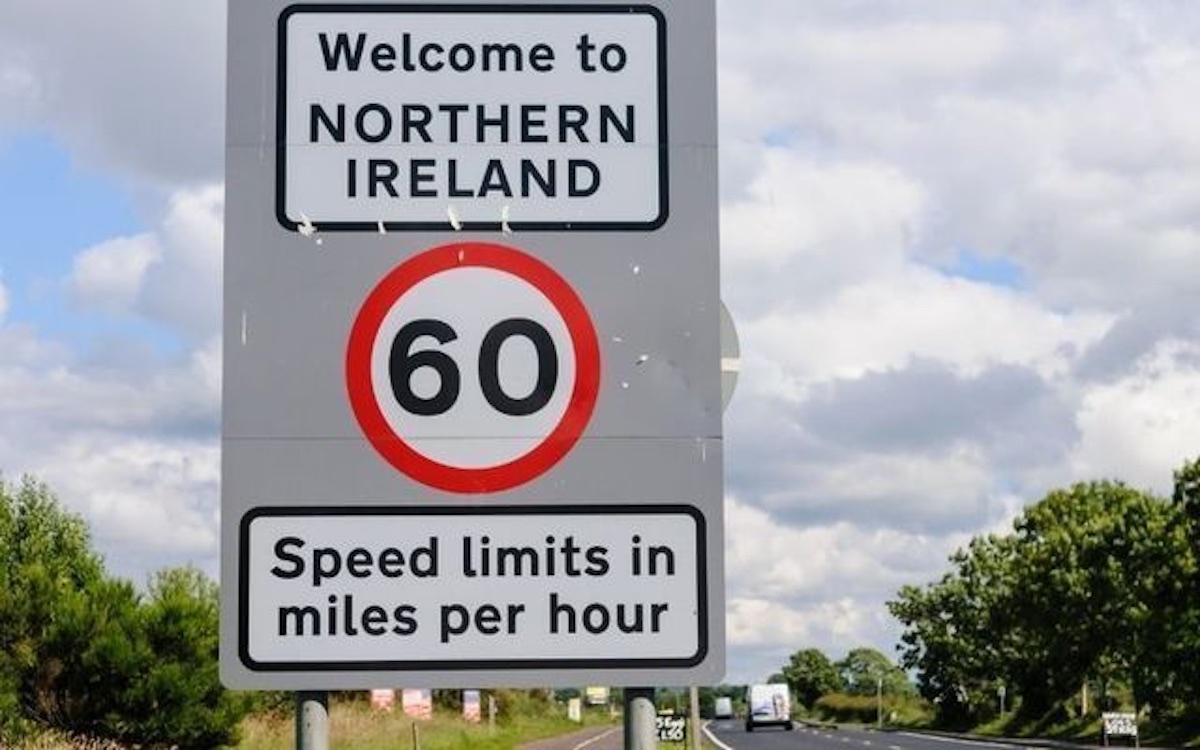
By Emma DeSouza (for the Examiner)
A fundamental lack of understanding between people North and South is the greatest barrier to reconciliation of this island.
The partitioning of Ireland divided not only the region but the people, with the lived experiences of Irish citizens on either side of the border entirely divergent through no more than an accident of birth.
A referendum on the constitutional future of this island is coming and it will be both exciting and challenging. We often talk about the border dividing the island, but this debate will centre on a different type of border — one in both hearts and minds.
In the Republic, Irish citizens were free to develop a strong, independent Irish identity, while those born north of the border would go on to face decades of further oppression, violence, and denigration.
To add insult to injury, Irish citizens in the North often encounter “othering” from their Irish counterparts in the Republic; 21-year-old Jude O’Kane, who hails from Belfast but studies in Dublin, says: “Leaving and going to Dublin kinda taught me no matter if you feel Irish, you’ll never be as Irish as they are in their minds, you’ll always be Northern Irish or different.”
The perception of people in the North as “not quite Irish enough” often rears its head when the notion of allowing Irish citizens in the North to participate in any of the democratic processes in the Republic is discussed. When Green Party members in Northern Ireland had the opportunity to vote on the programme for government in the South, senator David Norris wondered, in a letter in The Irish Times, “if [he] was the only one who thinks it extraordinary that a group of 800 UK citizens from the North of Ireland, who are members of the Green Party, have the right to dictate what government we have in the Republic?”
In the debate on extending presidential voting rights to Irish citizens resident outside the State, we in the North metamorphose into some kind of bogeyman, and when it comes to representation in politics, there is just one Northern Ireland resident in the Seanad.
Nessa Brennan, 23, from Fermanagh, says: “It feels like when they talk about Northern Ireland, it’s really far away, not up the road. I don’t think that they have a good grasp of what’s going on.”
Having lived in Dublin for university, she said the perception that people have of Northern Ireland is “shocking”, speaking of constant microaggressions. “You’re not Irish enough because you didn’t do the Leaving Cert. There’s so many misperceptions — there’s a lot of that — and they don’t welcome you in.
I feel like if you were born in England and you moved to Dublin, you’d be more welcomed in.
When 25-year-old Tara Grace Connolly, from Belfast, was appointed UN Youth Delegate for Ireland in 2020, she faced a deluge of abuse, most of which was rooted in her having been born in Northern Ireland. When asked if she has ever felt othered by people in the Republic, she said: “I had this person from Donegal tell me that I had no right to call myself Irish because I didn’t speak Irish — accessing the language is down to circumstances of birth, and it was as if the language only belonged to the Republic.”
It wouldn’t be until 2022 that Northern Ireland would get an Irish Language Act, a small victory following decades of campaigning for what few protections we now have.
A border poll is coming, and it will force all of us to face our biases and prejudices. As John Hume once said, the real border is in the hearts and minds of people. A fundamental lack of understanding between people North and South is the greatest barrier to reconciliation of this island.
Just last week, I had an Irish civil servant retort that I had no right to comment on the Irish Constitution because I was from Northern Ireland. I didn’t choose to be born in Derry, no more than someone chose to be born in Dublin, and that accident of birth does not make anyone Irish.
Throughout the five years I spent in court defending Irish identity in the North, I was forced to outline in great detail every indicator of my own Irishness to a British judge. Little did I know that the decision I made at 8 to take Irish dancing would later be placed on some kind of scorecard for British courts to determine if I truly qualified as Irish.
We need — with urgency — more representation from the North in the Republic, in both the media and politics, and we need to open this debate to face the ugly reality that we as a society have allowed for the normalisation of othering one another.
![[Irish Republican News]](https://republican-news.org/graphics/title_gifs/rn.gif)
![[Irish Republican News]](https://republican-news.org/graphics/title_gifs/harp.gif)

